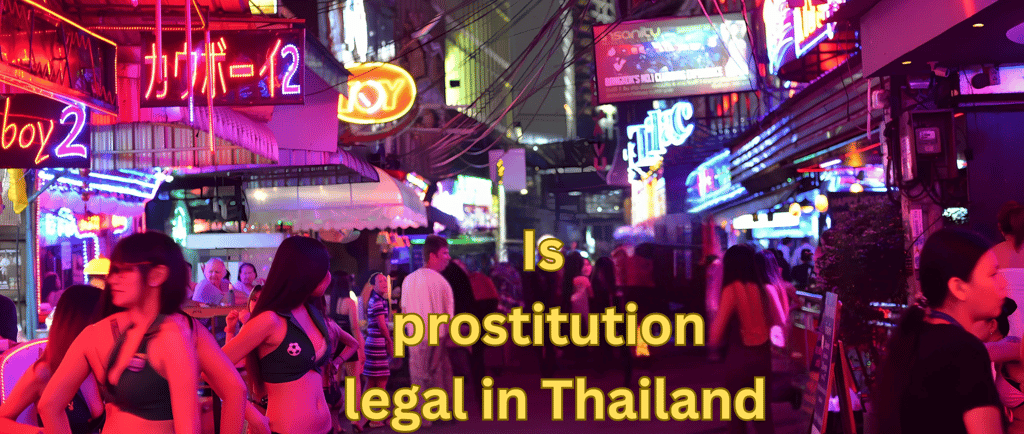Understanding Prostitution Laws in Thailand : is prostitution legal in Thailand
Explore the complexities is prostitution legal in Thailand? where despite being technically illegal under the 1996 Prevention and Suppression of Prostitution Act, the sex industry thrives with inconsistent enforcement. Learn about the legal landscape and its implications.
TRENDY NEWS
2/14/20255 min read
Click on link


Understanding the Legal Framework
The legal status of prostitution in Thailand is primarily governed by the Prevention and Suppression of Prostitution Act of 1996. This legislation, while acknowledging the existence of prostitution, renders it technically illegal under Thai law. It aims to curb various activities associated with the sex trade, making specific provisions against both solicitation and the operation of establishments designed for the purpose of prostitution. Under this act, individuals engaged in public solicitation can face criminal penalties, as can those who manage or profit from sex-related enterprises.
Key provisions of the 1996 Act address the complexities of prostitution, including penalties for both sex workers and those who exploit them. The law prohibits any behavior that may be interpreted as promoting or facilitating prostitution, thereby creating a legal environment that is challenging for sex workers and the businesses that might directly or indirectly support them. This prohibition extends to advertising and any form of public promotion of sexual services, further complicating the operational landscape for workers in the industry.
The historical context leading to this legislation is significant. In the 1990s, the Thai government faced increasing pressure from both domestic and international actors to take a firm stance against human trafficking and the exploitation of vulnerable populations. This was a period marked by a burgeoning recognition of human rights issues, particularly concerning women and children. Consequently, the Prevention and Suppression of Prostitution Act emerged as part of a broader effort to reshape the narrative around sex work in Thailand, adopting a more punitive approach aimed at reducing societal harm while attempting to align with international norms in the realm of human rights.
Prostitution in Practice: A Paradox
In Thailand, the paradox of prostitution is starkly evident, as it remains illegal according to the law, yet functions as an integral component of the socio-economic framework. The prevalence of prostitution takes numerous forms, from street solicitation to the operation of massage parlors and bars that cater to both local and tourist clientele. These establishments often serve as venues where sexual services are subtly exchanged, suggesting a complex dynamic where legality and social acceptance diverge.
Street prostitution, commonly observed in certain districts, exemplifies this contradiction. Despite being categorized as illegal, it thrives in the shadows, attracting both domestic and foreign patrons. Individuals involved often come from various socio-economic backgrounds, seeking financial stability and opportunities in a landscape where other avenues may seem limited. This reality creates an unspoken acknowledgment of prostitution's role within the economy, particularly in areas heavily reliant on tourism.
Furthermore, massage parlors and bars present another layer to this paradox. While officially marketed as establishments offering relaxation and leisure, many function as fronts for sexual services. The ambiguity surrounding their operations obscures the legality of the services offered, allowing them to perpetuate a business model that, while technically against the law, is tolerated by society at large. This environment enables a complicated relationship among locals, tourists, and the law itself.
Attitudes toward prostitution in Thailand vary widely. Many locals may view it as a necessary element of the tourism industry, contributing to the national economy. Conversely, tourists often approach the sector with curiosity and intrigue, sometimes perpetuating its existence through demand. Due to these prevailing sentiments, law enforcement related to anti-prostitution measures can often appear lax or inconsistent, leading to questions about the efficacy of existing regulations. Such contradictions highlight the complexities and challenges faced within the realm of prostitution in Thailand.
Social and Economic Implications
Prostitution in Thailand plays a complex role within the nation's socio-economic landscape. The industry is deeply intertwined with the tourism sector, contributing significantly to the local economy, especially in areas with high tourist footfall, such as Bangkok, Pattaya, and Phuket. Many individuals and families depend on the financial support generated by the sex trade, as it often offers a source of income in regions with limited employment opportunities. This economic reliance, however, highlights a dual-edged sword; while it provides necessary financial resources, it also perpetuates a cycle of vulnerability and exploitation.
Individuals involved in prostitution frequently face numerous challenges. The lack of legal recognition pieces health risks and societal judgment into a larger context that further marginalizes these individuals. They often work without legal protections, making them susceptible to exploitation by employers and clients alike. Due to the prevailing stigma surrounding sex work, individuals may not seek necessary health care or legal assistance, fearing social repercussions. This stigma can lead to a detrimental cycle where those involved suffer in silence, avoiding avenues that could improve their circumstances or safety.
Furthermore, the societal implications of prostitution extend beyond the individuals directly involved. Family structures and community values can be strained by the presence of the industry, with varying opinions on its acceptability often dividing populations. While some view prostitution as a necessary aspect of modern life and tourism, others see it as a source of moral decay. Balancing economic benefits against social consequences poses a challenge for policymakers and society at large, necessitating thoughtful discourse and exploration of sustainable solutions to support and protect the individuals impacted by the industry.
Possible Reforms and Future Perspectives
The ongoing debate surrounding the legal status of prostitution in Thailand highlights a complex interplay between societal norms, economic factors, and human rights considerations. Currently, Thai laws criminalize certain activities associated with sex work, leading to calls from various stakeholders for reforms that could either decriminalize or regulate the industry more effectively. Advocates for decriminalization argue that this approach would enhance the safety and rights of sex workers, enable better health access, and ultimately reduce stigma. These proponents emphasize that such measures would foster an environment in which sex work can be recognized as legitimate labor, thereby affording workers legal protections under labor laws.
Conversely, opponents of decriminalization often voice concerns about the potential for increased human trafficking and exploitation. They maintain that continuing prohibition serves as an effective deterrent against sex trafficking and other criminal activities typically associated with the sex industry. This perspective echoes sentiments shared by a significant portion of society who perceive sex work as morally objectionable and detrimental to community standards. As these stakeholders engage in dialogue, it is crucial to consider international perspectives and case studies. For instance, countries like New Zealand and Sweden have implemented various frameworks for sex work, leading to drastically different social outcomes and levels of protection for sex workers. New Zealand's model of decriminalization has been lauded for its positive effects on the health and rights of sex workers, while Sweden's 'Nordic model' criminalizes the purchase of sex but not the sale, aiming to reduce demand without punishing those who sell sex.
As Thailand navigates these difficult discussions, it will be beneficial to assess the experiences of other nations to inform its policies. Lessons drawn from international examples could provide valuable insights that may help create a balanced framework respecting the rights of all involved while addressing public concerns about morality and safety. The future of prostitution laws in Thailand remains uncertain, yet the dialogue surrounding potential reforms presents an opportunity for stakeholders to unify efforts towards a more just framework.
Inspiring
Explore soul-driven content on travel, tech, news, books.
Insightful
Soulful
1234567890
© 2024. All rights reserved.


